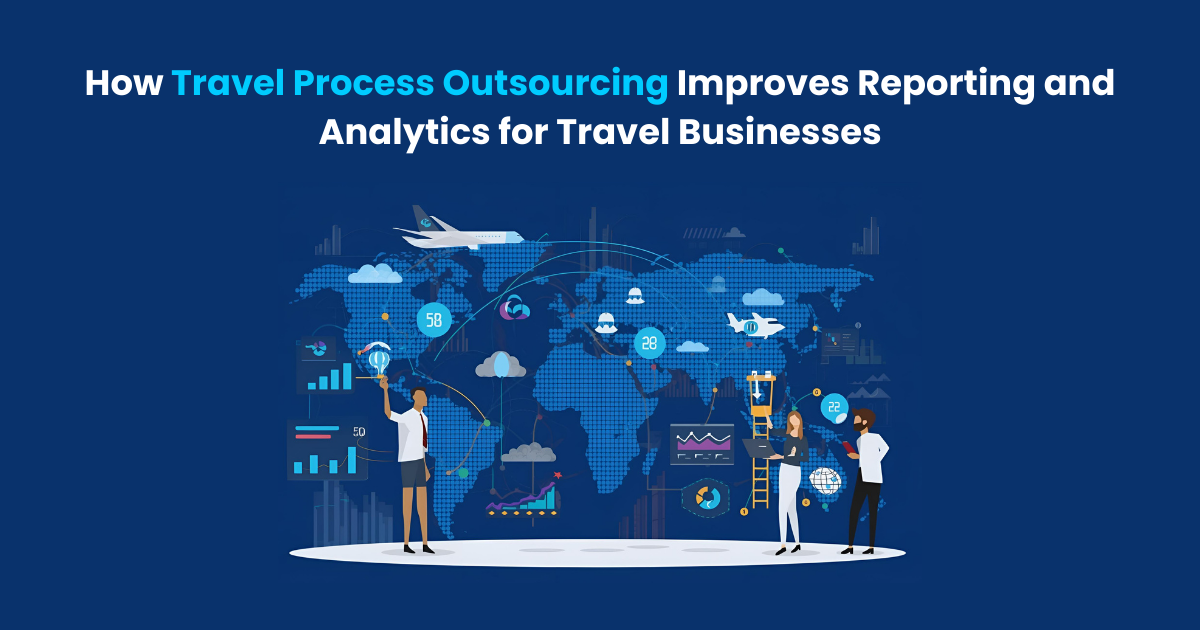
Introduction
Digital transformation is no longer a choice but a necessity for government agencies aiming to improve service delivery, transparency, and operational efficiency. In Texas, a state known for its vast size and diverse population, government bodies at various levels are actively adopting advanced technology platforms to meet the increasing demands of their constituents. One such platform gaining widespread traction is Microsoft Dynamics 365, a powerful suite of enterprise resource planning (ERP) and customer relationship management (CRM) tools designed to streamline operations, enhance citizen engagement, and enable data-driven decision-making.
This article explores how Texas government agencies are embracing Microsoft Dynamics for their digital transformation journeys, the benefits realized, challenges faced, and the critical role of microsoft dynamics implementation in Texas in driving successful implementations.
The Need for Digital Transformation in Texas Government
Texas is the second-largest state in the U.S., home to over 29 million residents spread across urban centers, suburban neighborhoods, and rural communities. Managing government services efficiently at such scale requires robust digital infrastructure capable of integrating disparate departments, automating manual workflows, and providing real-time insights.
Traditional legacy systems often lead to data silos, inefficiencies, and delayed responses to citizen needs. Increasing demand for transparency and accountability further pressures government agencies to adopt modern technology solutions that can provide seamless, accessible, and secure services.
Microsoft Dynamics 365 offers a comprehensive platform that addresses these challenges by combining ERP and CRM capabilities with advanced analytics, artificial intelligence (AI), and integration with Microsoft’s broader ecosystem (such as Power BI, Azure, and Office 365).
How Texas Government Agencies Use Microsoft Dynamics
Streamlining Financial and Budget Management
One of the most significant areas of impact is financial management. Texas government agencies, including municipalities, state departments, and public universities, are leveraging Microsoft Dynamics Finance and Operations modules to modernize budgeting, accounting, procurement, and grant management.
Automating financial processes reduces errors, ensures compliance with regulatory requirements, and improves transparency in the use of public funds. Real-time financial reporting empowers decision-makers to allocate resources more effectively and respond swiftly to budget changes or emergencies.
Enhancing Citizen Engagement and Service Delivery
Citizen services—from licensing and permits to social welfare and public safety—are complex and involve multiple touchpoints. Dynamics 365 CRM allows agencies to centralize citizen data, track interactions, and personalize communications.
By creating a unified platform for citizen engagement, agencies improve responsiveness and satisfaction. For instance, case management modules enable social service departments to manage client records, appointments, and follow-ups efficiently. Mobile and self-service portals integrated with Dynamics enhance accessibility, allowing Texans to interact with government services anytime, anywhere.
Improving Human Resources and Workforce Management
Managing a large and diverse public workforce is a challenging task. Microsoft Dynamics offers human capital management solutions that streamline recruitment, onboarding, performance management, and compliance training.
Texas government entities can maintain detailed personnel records, monitor certifications, and track attendance in a centralized system. Automation reduces administrative burdens and ensures that workforce policies are applied consistently across departments.
Optimizing Asset and Infrastructure Management
Government agencies in Texas oversee extensive physical assets, including roads, buildings, vehicles, and equipment. Dynamics 365’s asset management capabilities support preventive maintenance, lifecycle tracking, and budget forecasting, helping agencies extend asset longevity and reduce operational costs.
For example, transportation departments can schedule regular inspections and repairs to keep highways and public transit running smoothly, while facilities management can ensure government buildings meet safety and sustainability standards.
Data-Driven Policy Making and Compliance
One of the greatest advantages of adopting Microsoft Dynamics is the platform’s analytics and AI tools. With integrated Power BI dashboards and machine learning models, Texas agencies can analyze vast amounts of data to identify trends, forecast needs, and assess policy impact.
This capability supports more informed and transparent governance. Additionally, Dynamics helps maintain compliance with state and federal regulations by automating audit trails, access controls, and reporting.
Benefits Experienced by Texas Government Agencies
The transition to Microsoft Dynamics has delivered numerous benefits for Texas government agencies:
- Increased Efficiency: Automation reduces manual paperwork and speeds up processing times for citizen requests, payroll, procurement, and more.
- Improved Transparency: Real-time financial and operational data enhances accountability to taxpayers and regulatory bodies.
- Enhanced Collaboration: Integration with Microsoft Teams and SharePoint fosters cross-departmental collaboration and knowledge sharing.
- Scalability: Dynamics’ modular design allows agencies to implement the solution in phases and scale based on evolving needs.
- Better Citizen Experience: Personalized, timely communications and self-service portals improve public trust and engagement.
Challenges in Implementation
Despite these advantages, implementing Microsoft Dynamics in government settings is not without challenges:
- Legacy System Integration: Many agencies operate multiple legacy systems, making data migration and integration complex.
- Change Management: Staff may resist new workflows or technology due to habit or training gaps.
- Budget Constraints: Government budgets often require lengthy approval processes, which can delay procurement and deployment.
- Regulatory Compliance: Ensuring data privacy and meeting strict regulatory standards is critical but resource-intensive.
- Customization Needs: Tailoring Dynamics to meet specific government workflows and reporting standards requires skilled expertise.
The Role of Microsoft Dynamics Partners in Texas
To overcome these challenges, Texas government agencies increasingly rely on certified Microsoft Dynamics partners in Texas. These local partners provide essential services throughout the project lifecycle:
- Consultation and Planning: Partners assess the agency’s current environment, define goals, and design tailored Dynamics solutions aligned with government regulations and processes.
- Implementation and Customization: Experienced consultants customize modules to support specific government functions such as permit management, grant tracking, or public safety reporting.
- Integration Services: Partners handle complex integrations with legacy systems and third-party applications to create seamless workflows.
- Training and Change Management: Local partners conduct user training sessions and develop adoption strategies to ensure staff buy-in and minimize disruption.
- Ongoing Support and Maintenance: Post-deployment support includes system updates, troubleshooting, and performance optimization.
The advantage of working with Microsoft Dynamics partners in Texas lies in their deep understanding of regional regulatory environments, local government structures, and cultural nuances. They can offer faster response times and tailor solutions that align with Texas-specific requirements.
Case Example: Municipal Digital Transformation in Texas
A mid-sized Texas city recently partnered with a leading Microsoft Dynamics provider to overhaul its citizen services platform. The city replaced multiple siloed legacy systems with Dynamics 365, integrating financials, citizen case management, and asset tracking into one system.
The result was a 30% reduction in service request processing times and improved budget visibility for city officials. The partner provided extensive training and onsite support, ensuring smooth adoption among city employees and a successful go-live.
Future Outlook for Microsoft Dynamics in Texas Government
As Texas continues to grow rapidly, the pressure on government agencies to deliver efficient, transparent, and citizen-centric services will only intensify. Emerging technologies such as AI, IoT, and machine learning are increasingly integrated with Microsoft Dynamics, unlocking new possibilities for predictive analytics, automated compliance checks, and smart infrastructure management.
The commitment of Texas government agencies to digital transformation, supported by expert Microsoft Dynamics partners in Texas, positions the state as a leader in modern governance. This ongoing journey promises not only improved government operations but also a better quality of life for millions of Texans.
Conclusion
Microsoft Dynamics 365 is a critical enabler of digital transformation for Texas government agencies, helping them modernize financial management, citizen engagement, workforce administration, and compliance. While challenges remain, the expertise and localized knowledge of Microsoft Dynamics partners in Texas ensure these agencies can navigate complexities and realize the full benefits of this powerful platform.
Through continued investment and collaboration, Texas government entities are setting new standards for efficient, transparent, and responsive governance—embracing the future with confidence in their digital capabilities.




